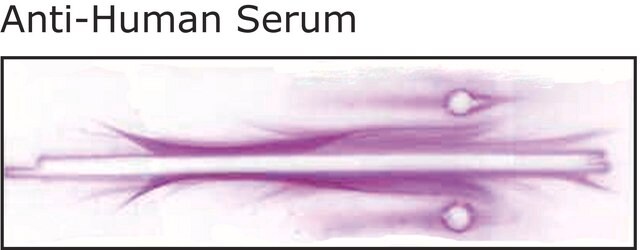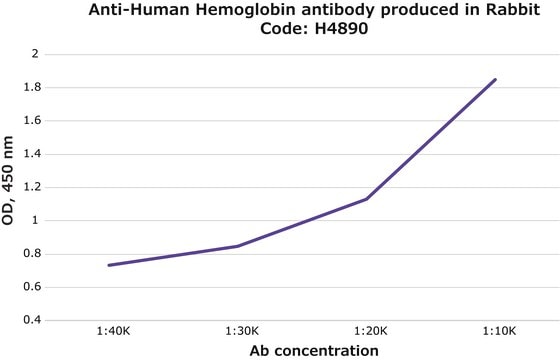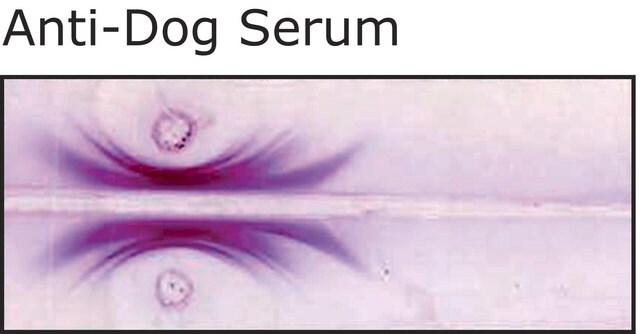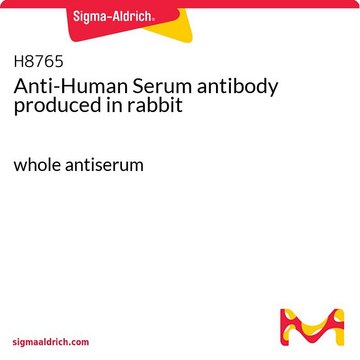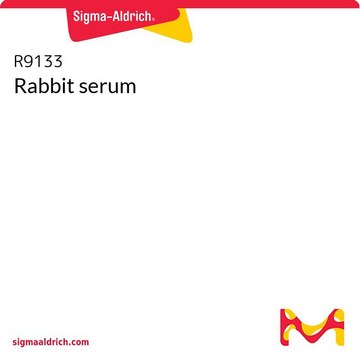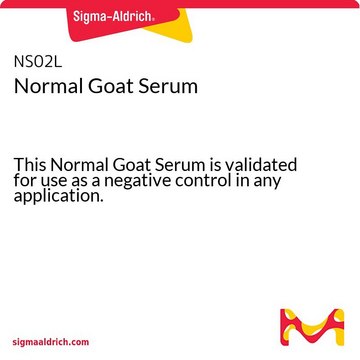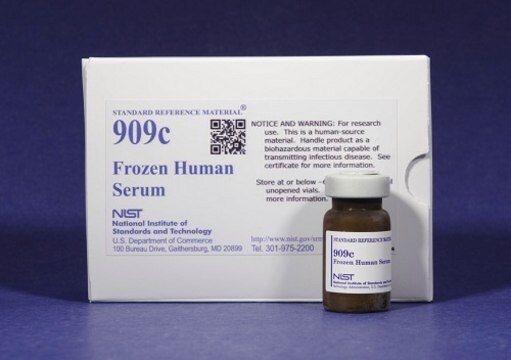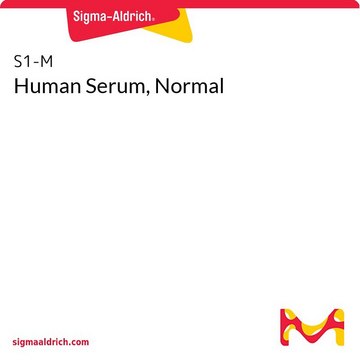H9640
Anti-Human Serum antibody produced in goat
whole antiserum
Synonym(s):
Anti-Human Serum
Sign Into View Organizational & Contract Pricing
All Photos(1)
About This Item
Recommended Products
biological source
goat
Quality Level
conjugate
unconjugated
antibody form
whole antiserum
antibody product type
primary antibodies
clone
polyclonal
contains
15 mM sodium azide
species reactivity
human
technique(s)
immunoelectrophoresis: suitable
shipped in
dry ice
storage temp.
−20°C
target post-translational modification
unmodified
Looking for similar products? Visit Product Comparison Guide
General description
Human serum albumin consists of three homologous domains that gather to form a heart-shaped molecule. Each domain is a product of two subdomains that hold collective structural motifs.
Serum is the liquid component of blood that includes proteins, immunoglobulin and electrolytes. It has a crucial role in several diagnostic tests. Anti-human serum antibody can be used in immunoelectrophoresis. Goat anti-human serum antibody reacts specifically with normal human serum.
Immunogen
Pooled normal human serum.
Application
Anti-human serum antibody can be used in immunosurgery.
Physical form
Goat Anti-Human Serum is provided as a liquid containing 0.1% sodium azide as preservative
Not finding the right product?
Try our Product Selector Tool.
Storage Class Code
13 - Non Combustible Solids
WGK
WGK 1
Flash Point(F)
Not applicable
Flash Point(C)
Not applicable
Personal Protective Equipment
dust mask type N95 (US), Eyeshields, Gloves
Choose from one of the most recent versions:
Already Own This Product?
Find documentation for the products that you have recently purchased in the Document Library.
Customers Also Viewed
B E Reubinoff et al.
Nature biotechnology, 18(4), 399-404 (2000-04-05)
We describe the derivation of pluripotent embryonic stem (ES) cells from human blastocysts. Two diploid ES cell lines have been cultivated in vitro for extended periods while maintaining expression of markers characteristic of pluripotent primate cells. Human ES cells express
Atomic structure and chemistry of human serum albumin
He X M and Carter D C
Nature, 358(6383), 209-209 (1992)
Teija Peura et al.
Current protocols in stem cell biology, Chapter 1, Unit1A-Unit1A (2011-03-15)
This unit describes generation of human embryonic stem cell lines from early human embryos. The focus is on actual handling of embryos and early embryonic outgrowths, omitting steps required for actual generation, freezing, and thawing of embryos, as well as
Our team of scientists has experience in all areas of research including Life Science, Material Science, Chemical Synthesis, Chromatography, Analytical and many others.
Contact Technical Service